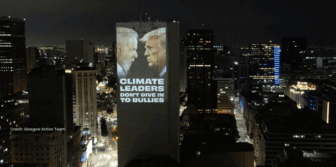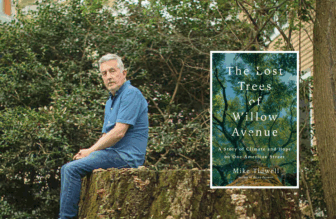“Between the Tropic of Capricorn and the Tropic of Cancer lies what I call the Tropic of Chaos, a belt of economically and politically battered post-colonial states girding the planet’s mid-latitudes. In this band, around the tropics, climate change is beginning to hit hard. The societies in this belt are heavily dependent on agriculture and fishing, thus very vulnerable to shifts in weather patterns. . . In this belt we find clustered most of the failed and semi-failed states of the developing world.” p. 9
Christian Parenti has written a book about climate change, “Tropic of Chaos: Climate Change and the New Geography of Violence,” from the perspective, by and large, of the least of these, of the world’s poor. And it is a very sobering picture.
He has also grounded his analysis in history and economics, placing the climate impacts that are being felt in the countries he visited and reports on within a broader context. In so doing, his book will help readers appreciate that the deadly and destructive impacts of climate change, caused mainly by the world’s burning of fossil fuels, are in many respects a continuation of colonial and neo-colonial policies in effect worldwide for centuries.
As Parenti says, “The current and impending dislocations of climate change intersect with the already-existing crises of poverty and violence. . . the catastrophic convergence.”
The countries reported on in this book, some more than others, are Kenya, Uganda, Somalia, Afghanistan, Kyrgyzstan, India, Pakistan, Brazil and Mexico. Parenti traces how drought, desertification and rainstorm deluges





